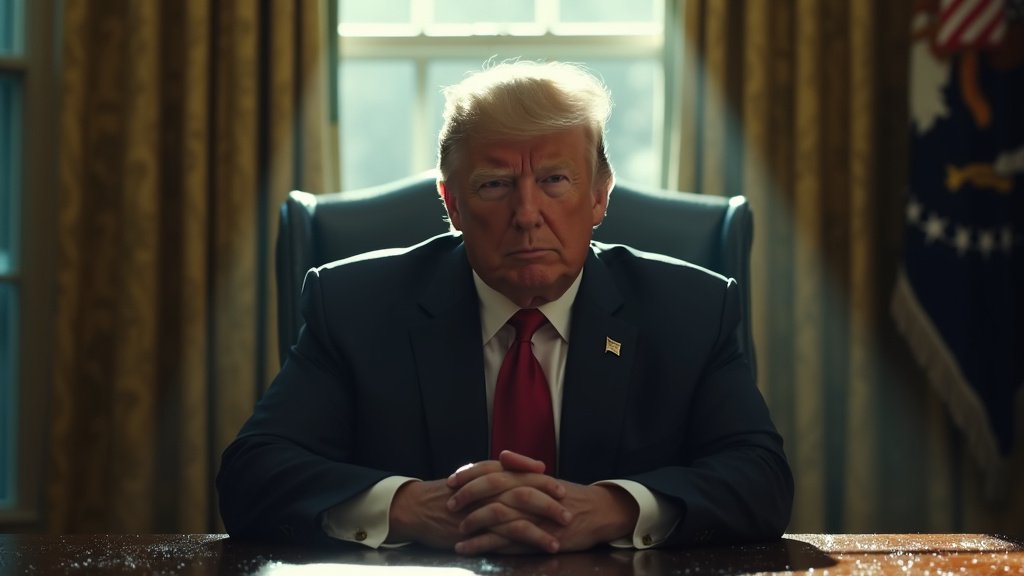Washington, D.C. – A key legislative initiative championed by President Donald Trump suffered a significant setback on Friday, May 16, 2025, when a coalition of conservative Republican lawmakers joined forces with Democrats to block its advancement in the House Budget Committee. The measure, a major tax and spending package that President Trump has informally referred to as the “big beautiful bill,” failed to secure the necessary votes to move forward, marking a notable moment of bipartisan opposition to the former president’s agenda.
The crucial vote within the House Budget Committee concluded with a tally of 16-21, effectively preventing the bill from advancing to the full House floor. The opposition included all committee Democrats and a bloc of conservative Republicans who voiced specific concerns regarding the bill’s spending levels.
Divisions Within the GOP
The defection of conservative Republicans proved decisive in the bill’s defeat. These lawmakers articulated their dissatisfaction with the proposed spending contained within the package, arguing for more aggressive and substantial cuts. Among the areas specifically cited by these Republican dissenters as needing deeper reductions was Medicaid, the federal-state health program for low-income Americans.
Their stand highlights the persistent ideological divides within the Republican party regarding fiscal policy, particularly the balance between tax cuts and government spending. While President Trump has historically favored tax reductions and has often presented his spending proposals as investments, a segment of the conservative base remains staunchly committed to reducing the national debt and shrinking the size of government through significant expenditure cuts.
The alliance between these conservative Republicans and the Democratic minority on the committee underscored the fragility of coalescing support for major legislation, even within the same party, when core policy principles diverge. Democrats, for their part, have broadly opposed President Trump’s tax and spending priorities, often criticizing their potential impact on social programs and the national debt from a different perspective.
President Trump’s Public Push
Leading up to the committee vote, President Trump had actively engaged in a public campaign to rally support for the legislation. Utilizing his preferred social media platforms, he had publicly urged Republican lawmakers to unify behind the “big beautiful bill,” emphasizing its potential benefits and calling for party cohesion to ensure its passage. His direct appeal, however, proved insufficient to sway the conservative faction determined to press for deeper spending cuts.
This legislative defeat represents a challenge to President Trump’s influence within the Republican party, particularly in areas of fiscal policy where conservative orthodoxy holds significant sway among certain members of Congress. It demonstrates that while his endorsement carries weight, it does not guarantee unified support on complex policy matters, especially when lawmakers face pressure from various ideological wings of the party and constituent demands.
The House Budget Committee Context
The House Budget Committee plays a critical role in the legislative process, responsible for drafting the annual budget resolution and reviewing legislation with significant spending implications. Its composition reflects the broader partisan makeup of the House, but internal party dynamics can often create unpredictable outcomes in committee votes.
The 16-21 vote on May 16, 2025, is a formal record of the committee’s initial judgment on the proposed tax and spending package. The specific rules governing the committee and the legislative process in the House determine the path forward after such a setback.
Looking Ahead: A Second Attempt
Despite the initial failure, the legislative effort is not immediately abandoned. According to the schedule announced following Friday’s vote, the House Budget Committee is slated to reconvene on Sunday night, May 18, 2025. The stated purpose of this upcoming session is to make another attempt to move the legislation forward.
This indicates that proponents of the bill, likely in consultation with President Trump’s allies, will seek to find a path to garner additional support or potentially modify aspects of the bill to address the concerns raised by the dissenting Republicans. Negotiations and concessions may be necessary to bridge the gap between those seeking comprehensive tax and spending reforms and those prioritizing immediate, substantial spending reductions, particularly in areas like Medicaid.
The outcome of the Sunday night session will be closely watched as it will determine whether the “big beautiful bill” has a viable path through the House or if the divisions exposed on May 16, 2025, represent an insurmountable hurdle for this particular legislative package in the current political climate.











